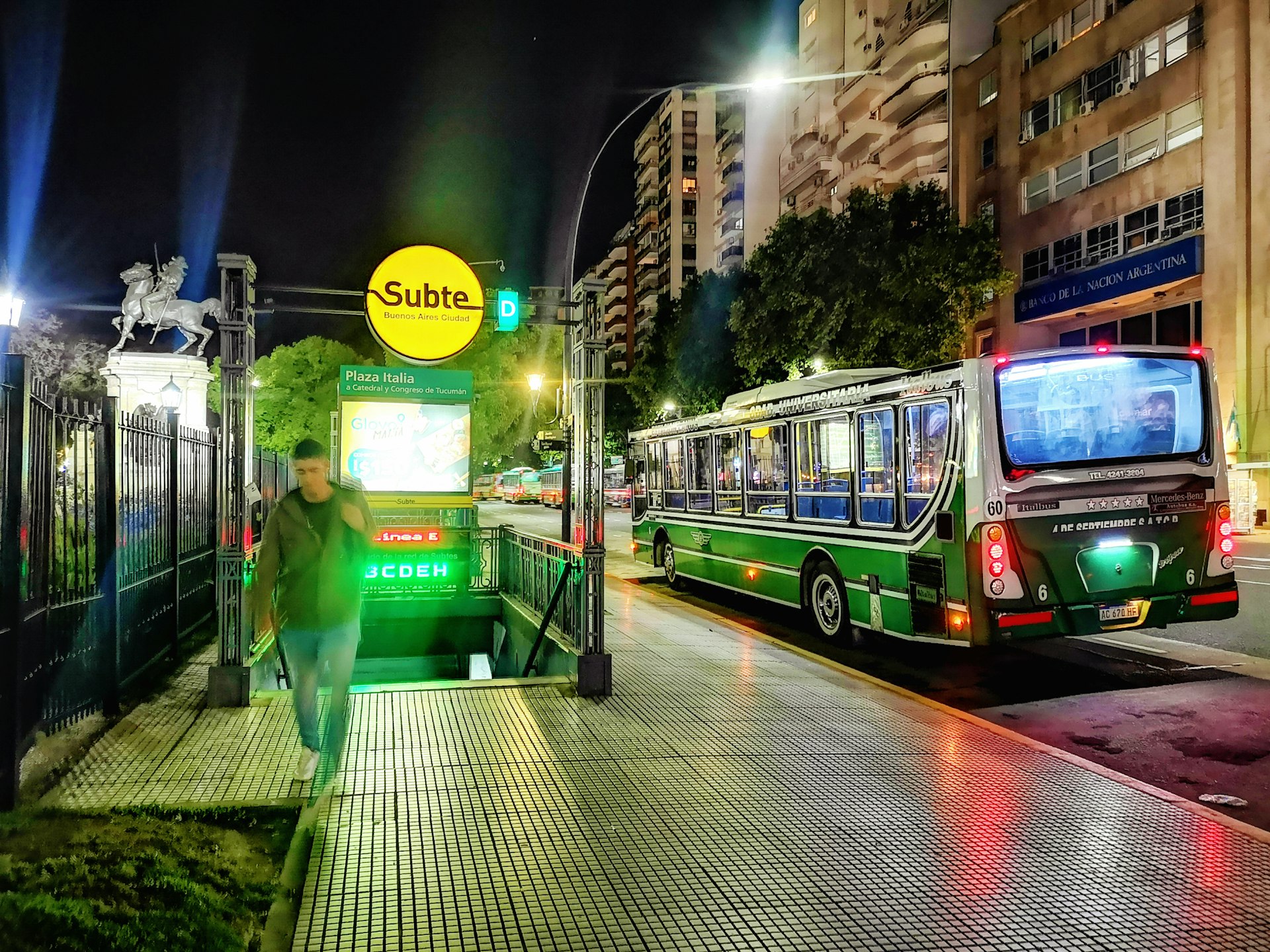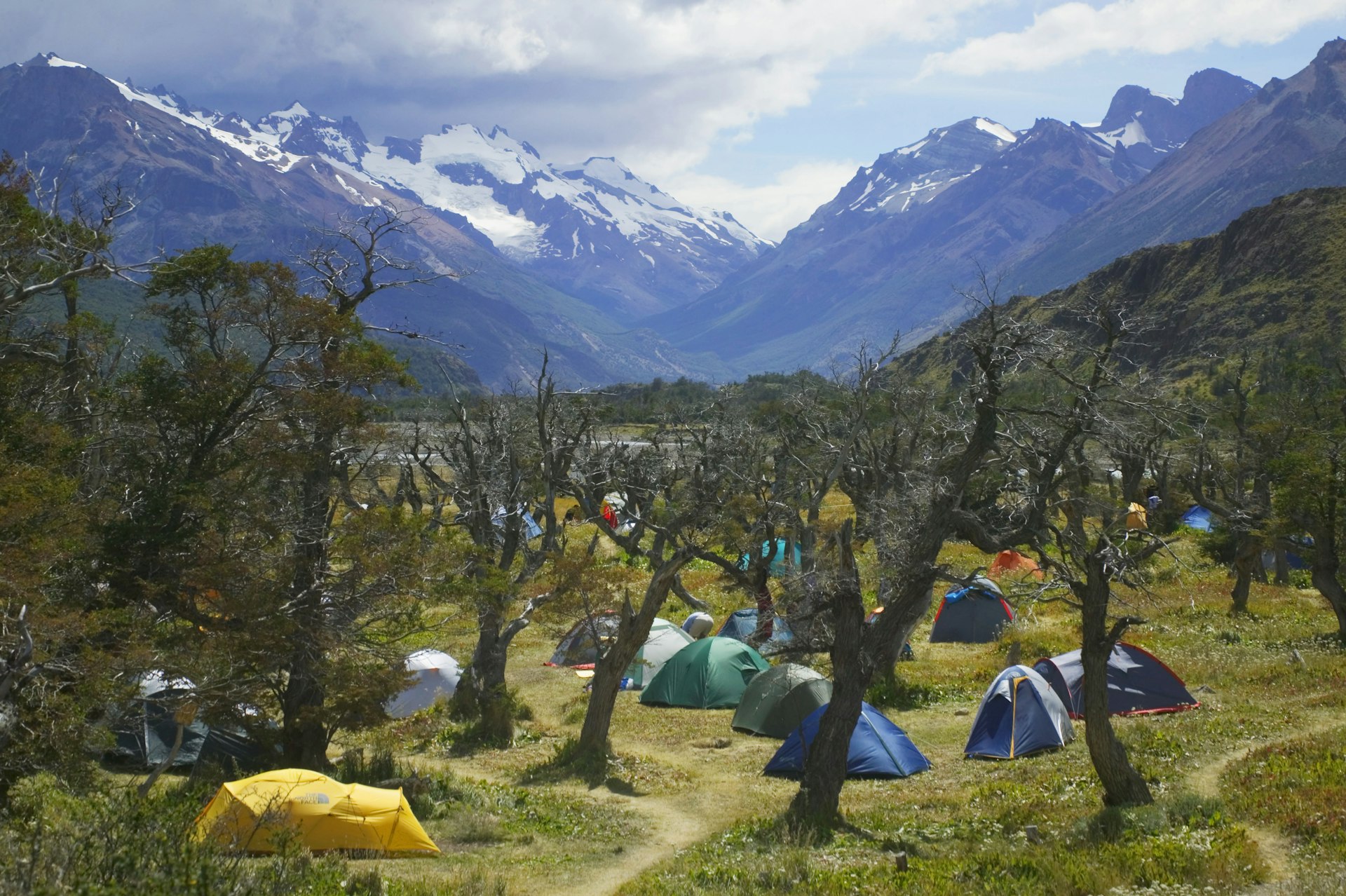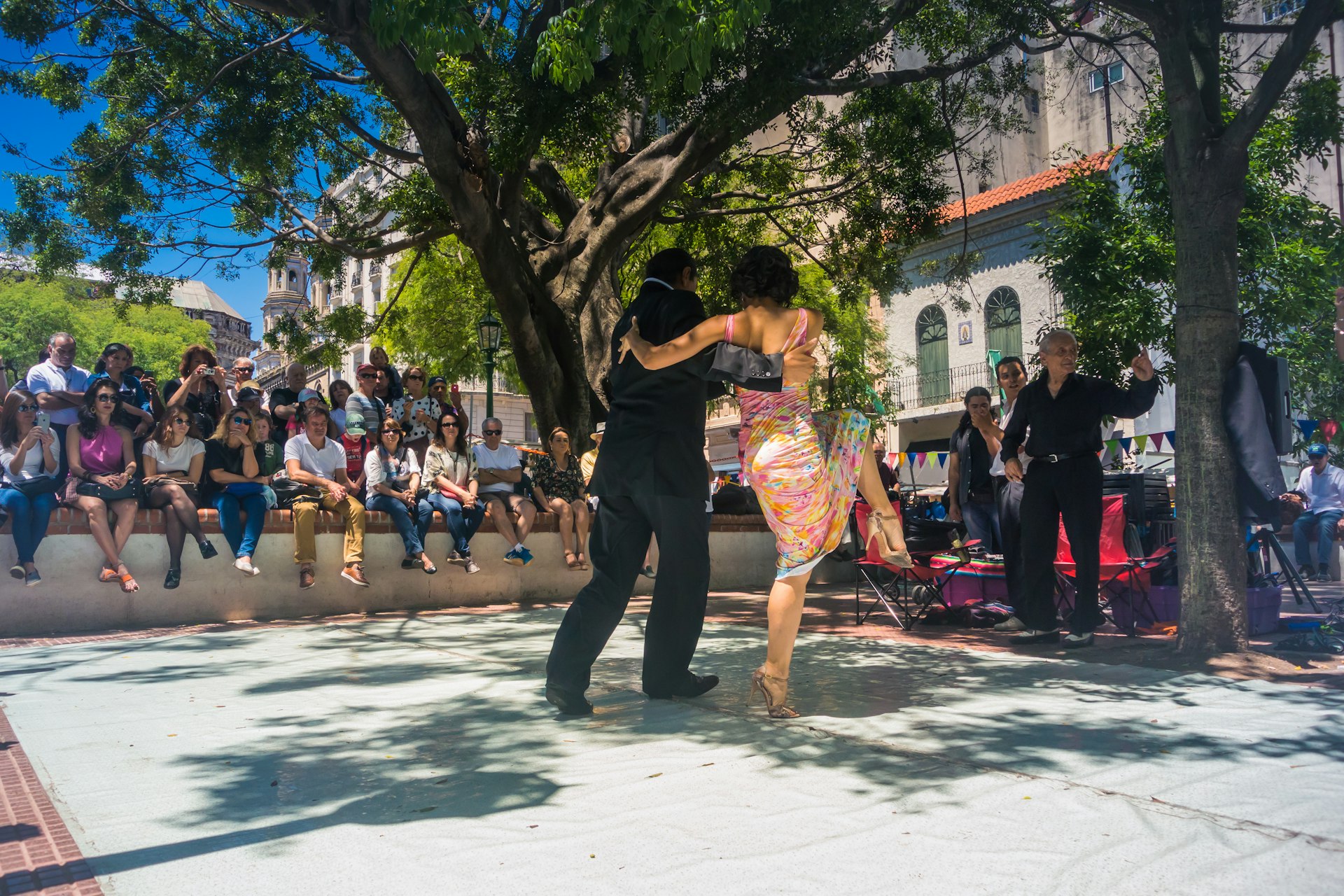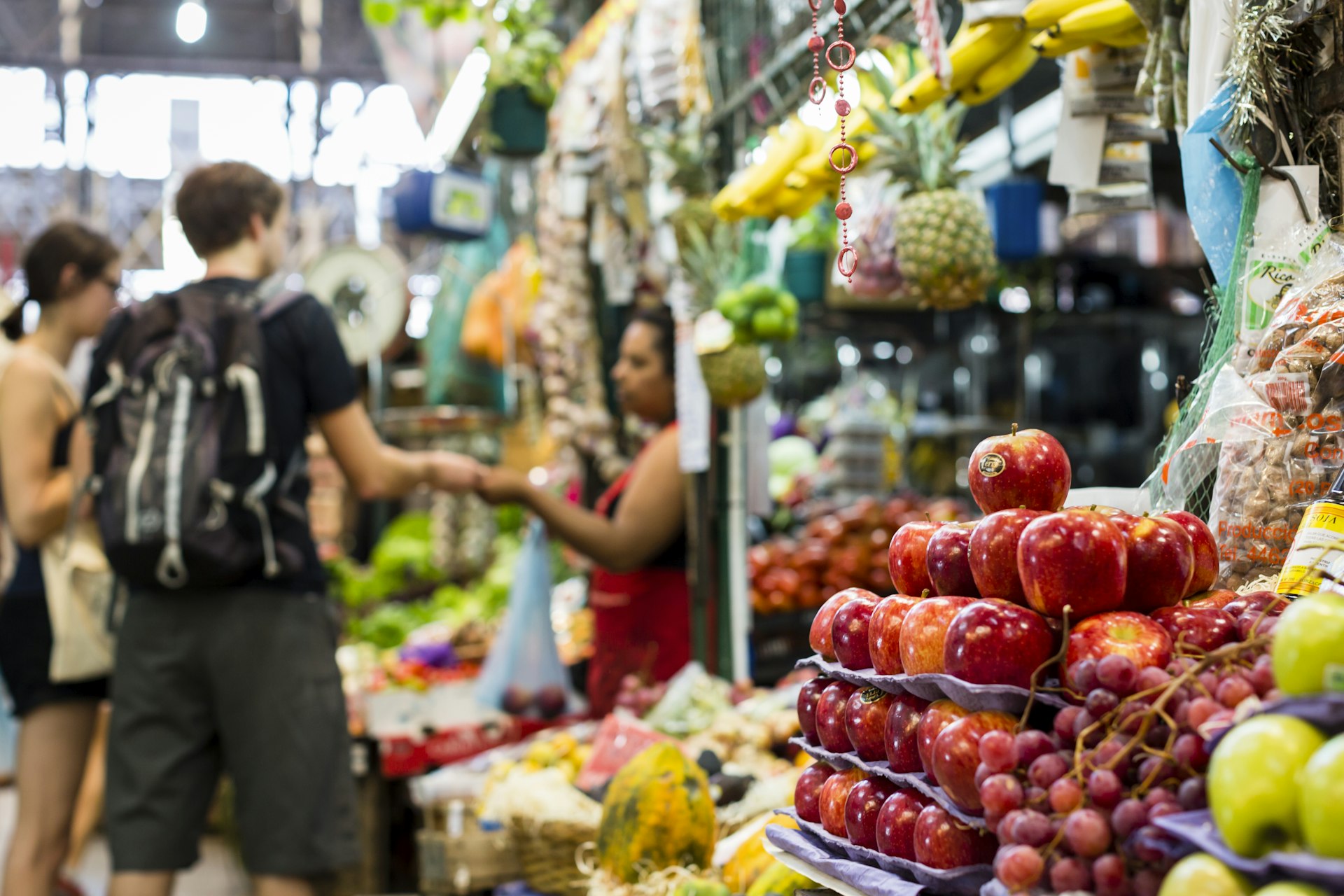Argentina has traditionally been considered a budget destination for foreign tourists; the country’s highly unstable economy has resulted in multiple exchange rates, leading to low-cost goods and services. The only large expense travelers usually bemoaned was the high cost of flying into the country – but that’s changing.
Since Argentine President Javier Milei came to power, he’s made sweeping reforms, simultaneously strengthening the Argentine peso against the US dollar and sending the country into a deeper recession. While transportation costs have remained low, the price of eating out and accommodation rates have risen.
There are still plenty of ways to visit Argentina on a budget, though, especially if you travel like a local.
Average daily costs in Argentina (in USD)
- Hostel room: $8-$30 a night
- Basic room for two: $20-$50
- Self-catering apartment (including Airbnb): $10-$50 per night
- Public transport one-way ticket: $0.42-$0.55
- Coffee: $3.15
- Empanada: $1-$2.50
- Dinner for two: $30-$40
- Beer pint at the bar: $3
- Average daily cost: $40-$125
Self catering with food from local markets will save you some cash in Argentina © Andrew Peacock / Getty Images
Bring large bills of stable currency (like USD) to get the best exchange rate
While the various exchange rates in Argentina are not as disproportionate as before, exchanging cash will still give you the best rate. Bring large bills ($100 notes get the highest rate), and exchange at a cueva (unofficial exchange house). This way, you will not be charged high ATM or Western Union transfer fees.
Cash also gives you the best rate when purchasing goods or services. If you pay in cash, you help businesses avoid card processing fees, and many will give you a 10% discount.
Buy flights to Buenos Aires from Miami, Los Angeles, or Madrid
If flying from or through the United States, consider booking your flight via Miami or Los Angeles.
Though Houston has the shortest direct flights to Argentina, you can often get the price of a round-trip ticket from Miami or Los Angeles to Buenos Aires for the same rate as a one-way ticket from Houston.
If traveling through or from Europe, Madrid is usually the cheapest place to fly.

Utilize Argentina’s subway, buses, planes, and trains – if you can get them
The only subway in Argentina is Buenos Aires’ Subte system. It’s easy to use, and anywhere in the city not reachable by the Subte can be accessed via bus. Check routes on the Cómo Llego app or Google Maps.
To see the rest of the country, book flights on budget airlines like Flybondi, which usually are cheaper or as cheap as long-distance buses.
Trains to the surrounding areas of Buenos Aires – like Tigre and La Plata – are easy to catch and reliable, but trains to the country’s farther reaches can be very hard to get and require advance planning. That said, they are very budget-friendly.
In other cities (except in Mar del Plata), like Salta, Bariloche, and Córdoba, local buses are convenient and easy to access.
In Buenos Aires, take taxis instead of rideshares – except when going to or from Ezeiza International Airport
When moving around Buenos Aires, taxis are often cheaper than rideshares. Taxis do not accept cards, though, so have cash on hand to pay.
Taxis coming to the city from the airport usually want to agree on a set rate off meter, so a rideshare can be worth it to avoid haggling.
The best airport budget option (besides taking the Line 8 bus, which won’t be possible if you don’t have a SUBE card yet) is to take the minibus that picks up passengers just beyond the bus stop.
The ticket costs US$10 and will drop you off in the San Telmo neighborhood. (This is separate from the Tienda de Leon shuttle, which has far more seats and is much slower).
If flying into Bariloche, it’s common to ask people from your flight to share a taxi, as there’s only one way into town.
Book monthly stays, check Facebook groups, and avoid immersive experience packages for accommodation
If you are coming to Argentina to study Spanish, several Spanish schools offer immersive packages. These usually entail a monthly price of around US$1,000 for classes, coupled with a homestay in a local’s house, sometimes including meals.
It’s a better deal to book the classes with the school, then find your own accommodation through Airbnb or a Facebook housing group.
It’s popular for travelers on a long trip to book a week or two in different parts of Buenos Aires to experience its diverse neighborhoods. Save money by staying in one place and getting a monthly rate, rather than the weekly or nightly rates you’ll get neighborhood-hopping.
Facebook groups and Craigslist can be reliable ways to find budget accommodation in Buenos Aires. Look for the term dueño directo (owner direct) to get the best deals and avoid a commission (usually 30%) from rental companies that also post in these groups.

Bring your outdoor gear rather than buying it in Argentina
Any outdoor gear you’ll need – hiking, camping, rock climbing – will be expensive to purchase in Argentina due to importation taxes. Check what you’ll need before your trip, so as not to be stuck in Patagonia trying to buy gear right before an outdoor expedition.
Should you find yourself in need of a sleeping bag, some refugios (mountains huts) in the national parks will rent you one for the night.
Buy comida por peso, empandas, or platos del día for lunch
For a budget-friendly lunch, head to a comida por peso (food by weight) restaurant. Select your food, have the attendant weigh it and pay the fee based on the weight.
Another inexpensive option? Empanadas! Empanada shops can be found throughout the country and have both meat and vegetarian options.
For an affordable but more complete meal, go to restaurants with a plato del día (daily lunch special) that will include an entree, a drink and a dessert or appetizer for a set price.
Shop at small shops instead of supermarkets, and cook in your accommodation
Argentina has many verdulerías (fruit and vegetable shops) and carnicerías (butcher shops), and they’re usually cheaper and better quality than supermarkets.
Meat and wine can be bought at a low cost anywhere, but fresh produce – particularly imported fruits and vegetables – can get pricey.
Stick with what’s grown in the country. Find out the daily or weekly sales by asking for the oferta (offer) at the small shops.
Eating out is generally the main expense people have outside of accommodation in Argentina. Cooking can save you hundreds of dollars, especially on a month-long trip.

Go to a milonga or watch tango in the plaza
While tango shows at dedicated venues can be impressive, they can be expensive. Instead, go to a milonga (tango club) and see the local dance community on the floor. Check Hoy-Milonga for events.
San Telmo’s Plaza Dorrego also has tango performances during the afternoon, where you can tip performers and not have to purchase an expensive meal option like at the big venues.
For entertainment, go to government-sponsored events
The Argentine government hosts different free festivals and events throughout the year that celebrate the country’s history, music and food. Disfrutamos BA lists current offerings.
Catch La Noche de los Museos in Buenos Aires and other cities for free entry to all museums until the wee hours of the morning. Similarly, La Noche de Librerias turns Buenos Aires’ streets into an open-air book fair, and its bookstores stay open late.
Keep planning your trip to Argentina:
Hit the highway with the 5 best road trips in Argentina
Stay current with 10 things Argentina locals know
Make sure you know the visa requirements to go to Argentina
